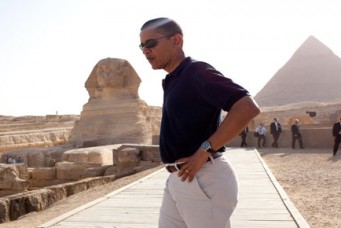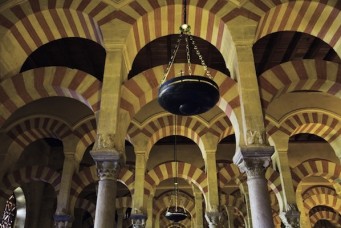Long View
Eugene Rogan is an American, but when he arrived in Cairo recently, to present a talk at the Cairo Opera House and appear on a panel at the American University in Cairo, he was in some way coming home. The son of a military contractor, he spent much of his childhood in the Middle East–initially in Lebanon, where he witnessed the reverberations of the 1973 Arab-Israeli War and the outbreak of the Lebanese Civil War; and later in Egypt, at the time of the bread riots and Anwar Sadat’s dramatic visit to Israel. Rogan, a lecturer at Oxford University, returned to Egypt for the launch of the Arabic translation of his acclaimed book, The Arabs: A History.
Eugene Rogan is an American, but when he arrived in Cairo recently, to present a talk at the Cairo Opera House and appear on a panel at the American University in Cairo, he was in some way coming home. The son of a military contractor, he spent much of his childhood in the Middle East–initially in Lebanon, where he witnessed the reverberations of the 1973 Arab-Israeli War and the outbreak of the Lebanese Civil War; and later in Egypt, at the time of the bread riots and Anwar Sadat’s dramatic visit to Israel. Rogan, a lecturer at Oxford University, returned to Egypt for the launch of the Arabic translation of his acclaimed book, The Arabs: A History.
Rogan’s long view proves to be relevant to the history being made today just across the Nile from the Opera House in Tahrir Square and across the entire region. “What most people don’t realize,” Rogan explains, “is that the events of 2011 have deep historical roots.” In his talk, he notes that as long ago as 1834, Egyptian Muslim scholar Rifa’a Al-Tahtawi praised French constitutional government, and how Arab reformers such as Khair al-Din Pasha produced Tunisia’s first constitution in 1861. Rogan describes a history of almost constant resistance, reform, and revolution in the Arab world–in contrast with the common Western narrative of a perpetually stagnant and docile region.
According to Rogan, what would become the “very pernicious role of the military in politics” had its origins in the revolt led by Egyptian army officer Ahmed Orabi in 1879–crushed by the British three years later. He describes the eventual rise to power of Egypt’s Gamal Abdel Nasser, and anti-colonial military rulers elsewhere in the Arab world, as a “great honeymoon period,” but notes how it eventually gave way to misrule and repression by military regimes. After six decades of darkness, Rogan believes, “the year 2011 marks the beginning of the end of autocracy…. At this point, there is no way to force people back into the box. Revolutionary change and political reform has become universal across the Arab world.”
Having grown up during tumultuous times in the region, Rogan told the Cairo Review after his Cairo Opera talk, “nothing seemed as interesting to me as the Middle East after that.” In between speaking commitments, he did manage to get around the city and visit old haunts. “The most striking difference is the freedom of speech I’ve noticed in every corner of Cairo I’ve visited,” he says. “It is such a pleasure to hear people express themselves without looking over their shoulders.”




